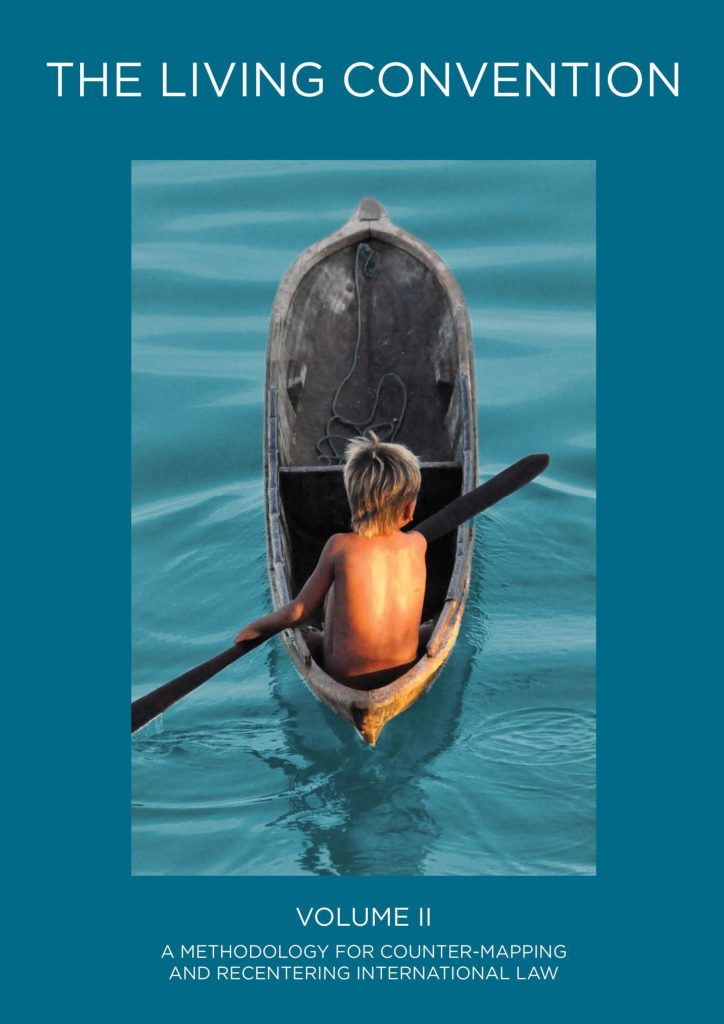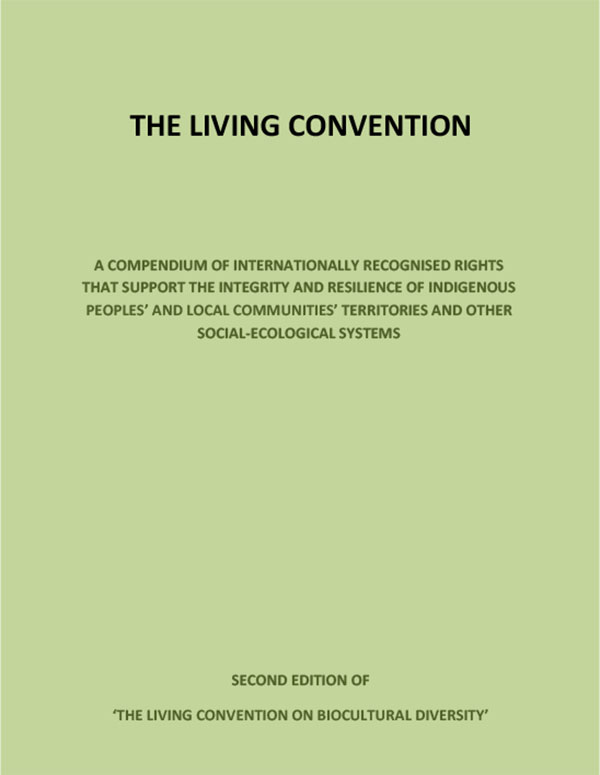Indigenous peoples, local communities and peasants often ask what their rights are at the international level. The answer to this crucial question is complicated for several reasons. The provisions containing the rights are spread across a wide range of international instruments, each with its own particular focus, secretariats and signatories.
This practical issue compounds other existing barriers that Indigenous peoples and local communities face when wanting to learn about and assert the full spectrum of their rights relating to issues such as proposed developments on their territories or use of their natural resources and knowledge.
To address this deficiency, Natural Justice has produced The Living Convention. Using an integrated rights approach, the Living Convention is an accessible compendium of Indigenous peoples’, local communities’ and peasants’ international rights. By collating provision from separate international instruments by type of right (e.g. Free Prior and Informed Consent or access to justice), the reader is able to quickly assess the extent of international law relating to a particular issue.
The Living Convention aims to democratise international law by providing a straightforward resource for Indigenous peoples, local communities and peasants to refer to when seeking to understand and assert their international rights.
The third edition of the Living Convention (published on International Indigenous Peoples Day, August 2020) is comprised of two volumes:
- Volume I contains a compendium of internationally recognised rights that support the integrity and resilience of Indigenous peoples’, local communities’ and peasants’ territories and other social-ecological systems.
- Volume II sets out the rationale and methodology of the research undertaken to develop the compendium.
The Living Convention also includes annexes. These detail the instruments reviewed, included, and excluded from the Compendium; they provide a list of relevant international and regional judgments; and they reference a number of Indigenous peoples’ declarations.
This revised edition of the Living Convention includes internationally agreed instruments, such as the UN Declaration on the Rights of Peasants and Other People Working in Rural Areas, and represents a further step in an ongoing process of ensuring that state and non-state actors are held accountable to international legal standards. It currently available for download in English in Volume I and Volume II. Please contact us if you have any questions or suggestions.



